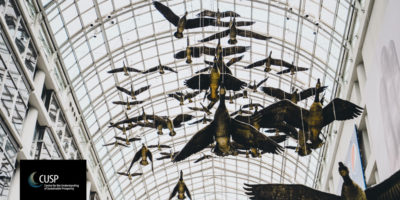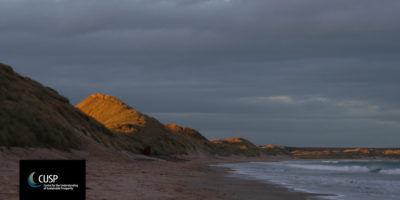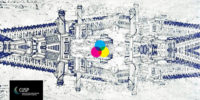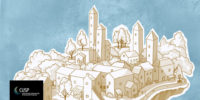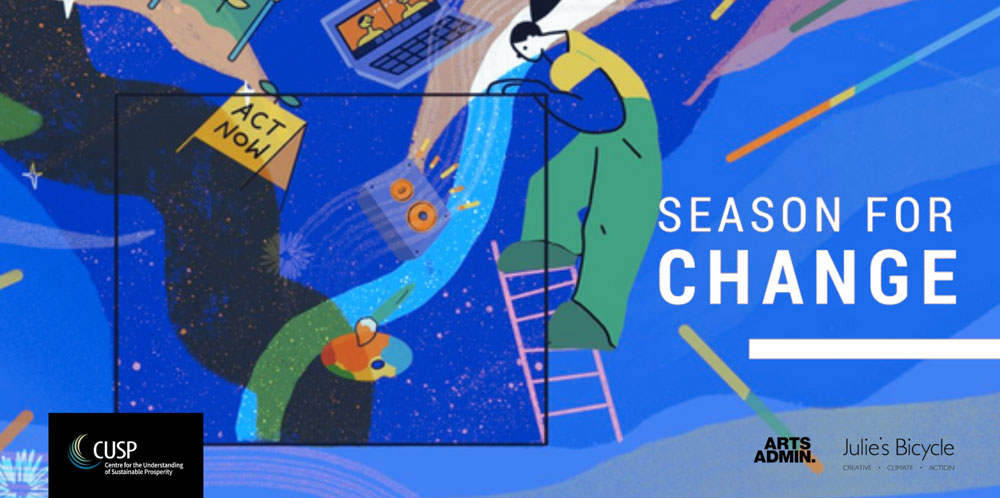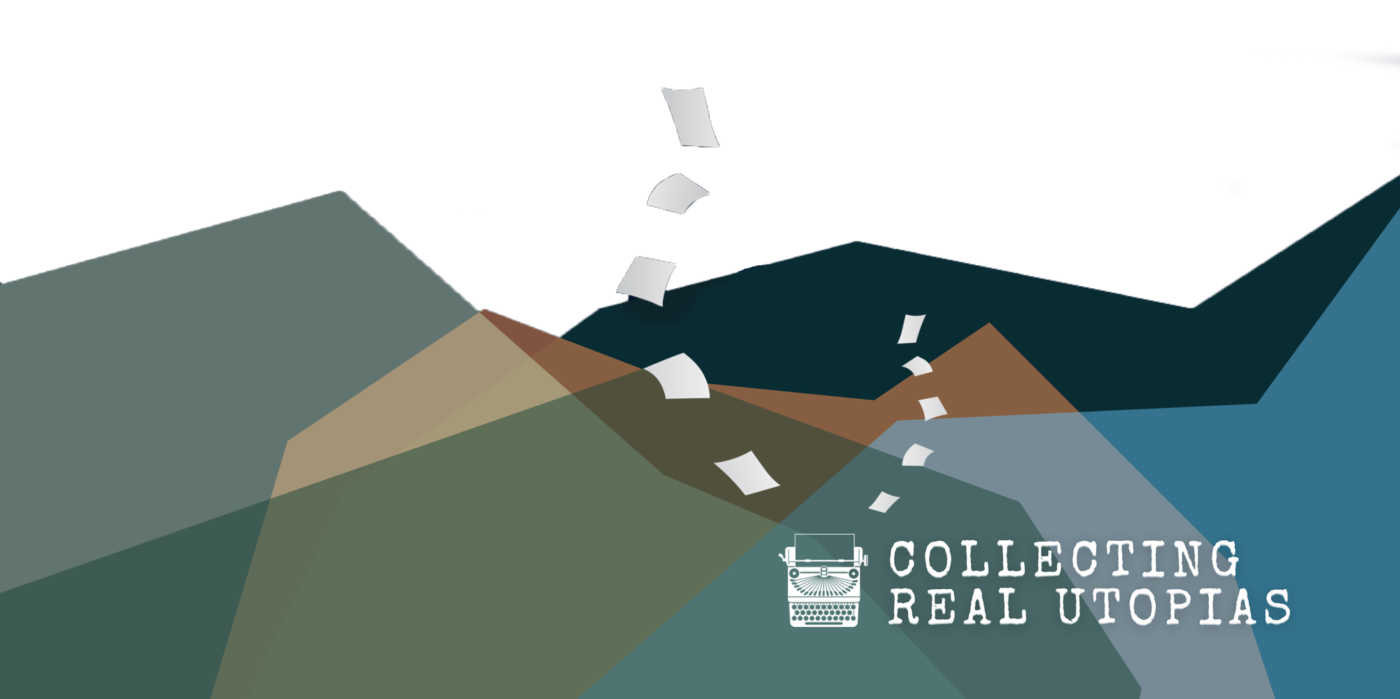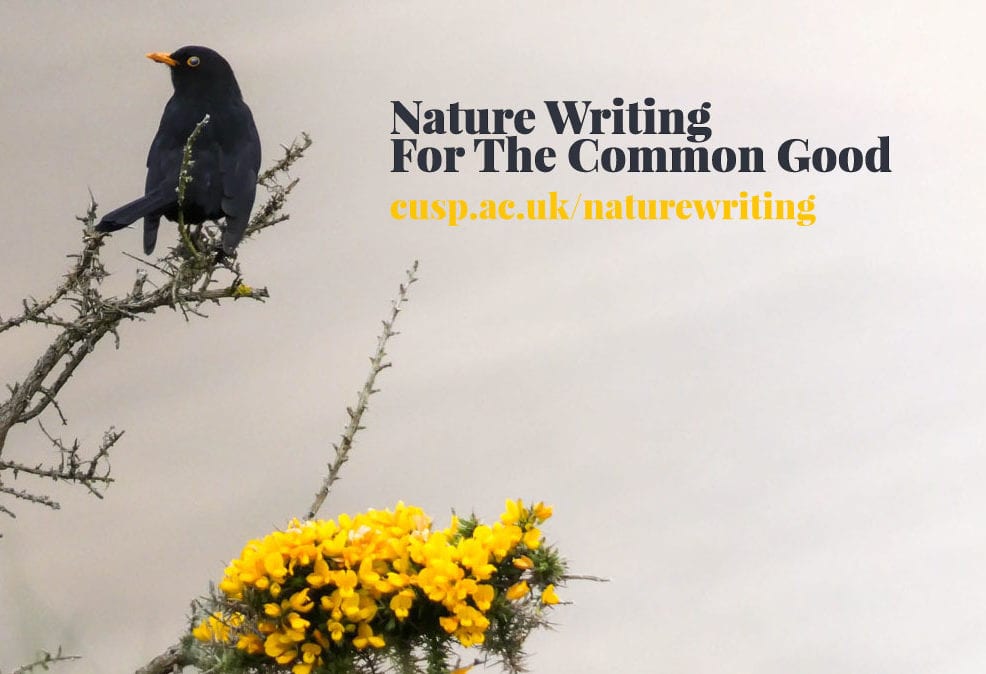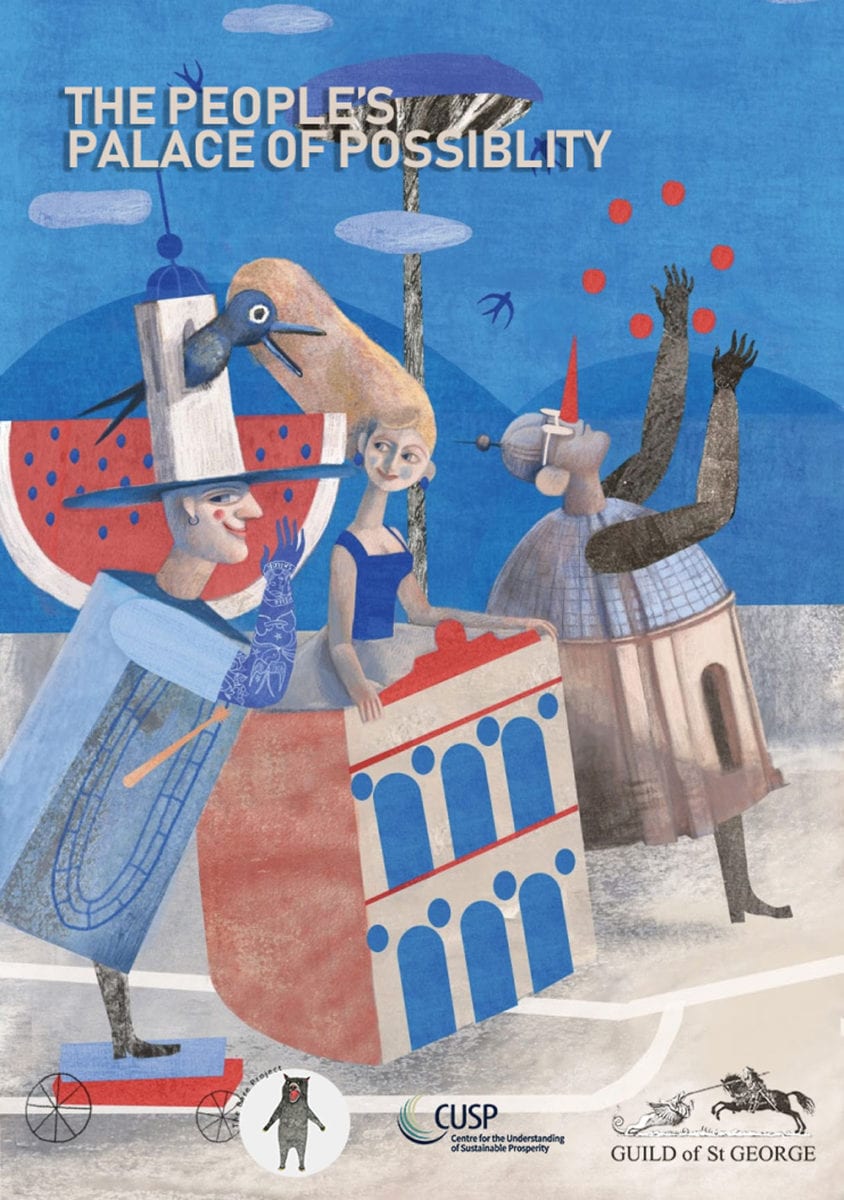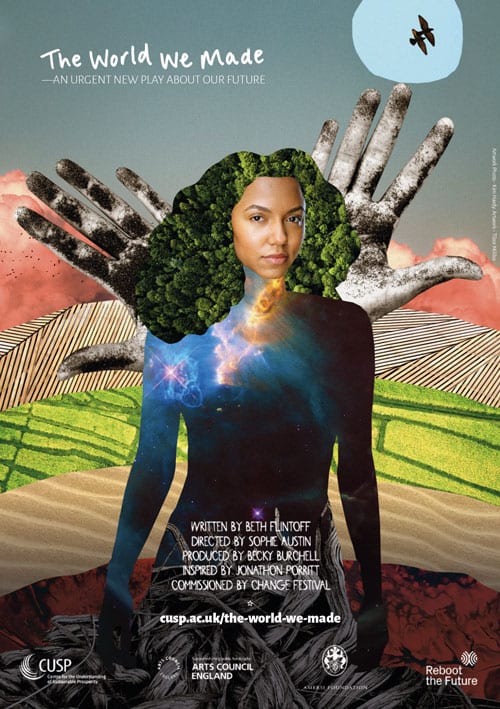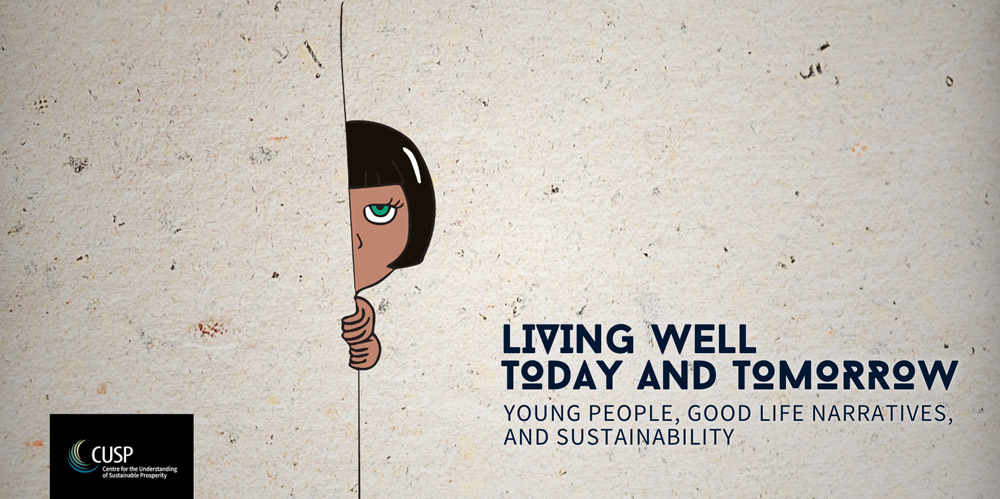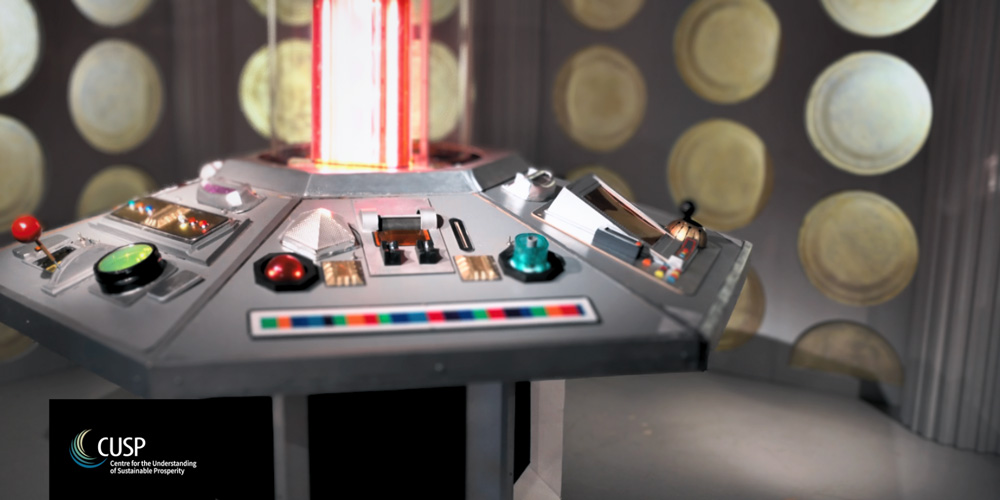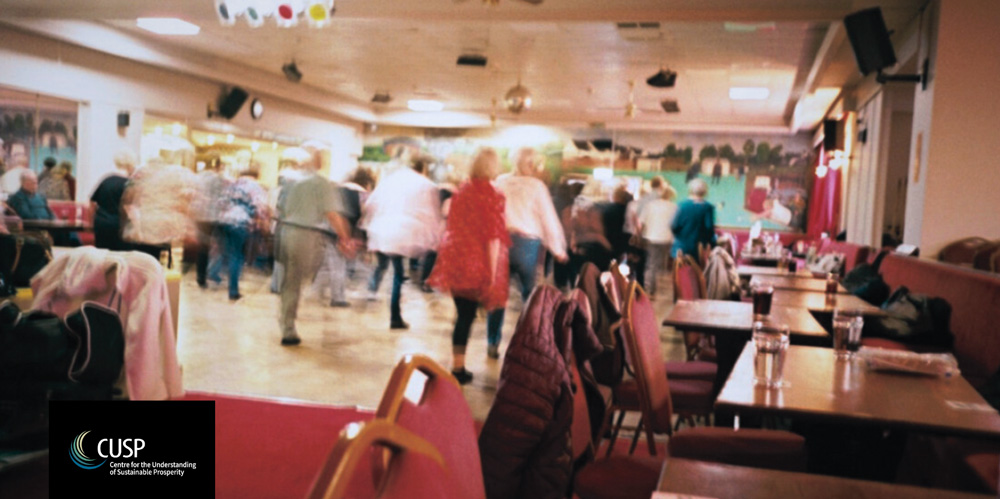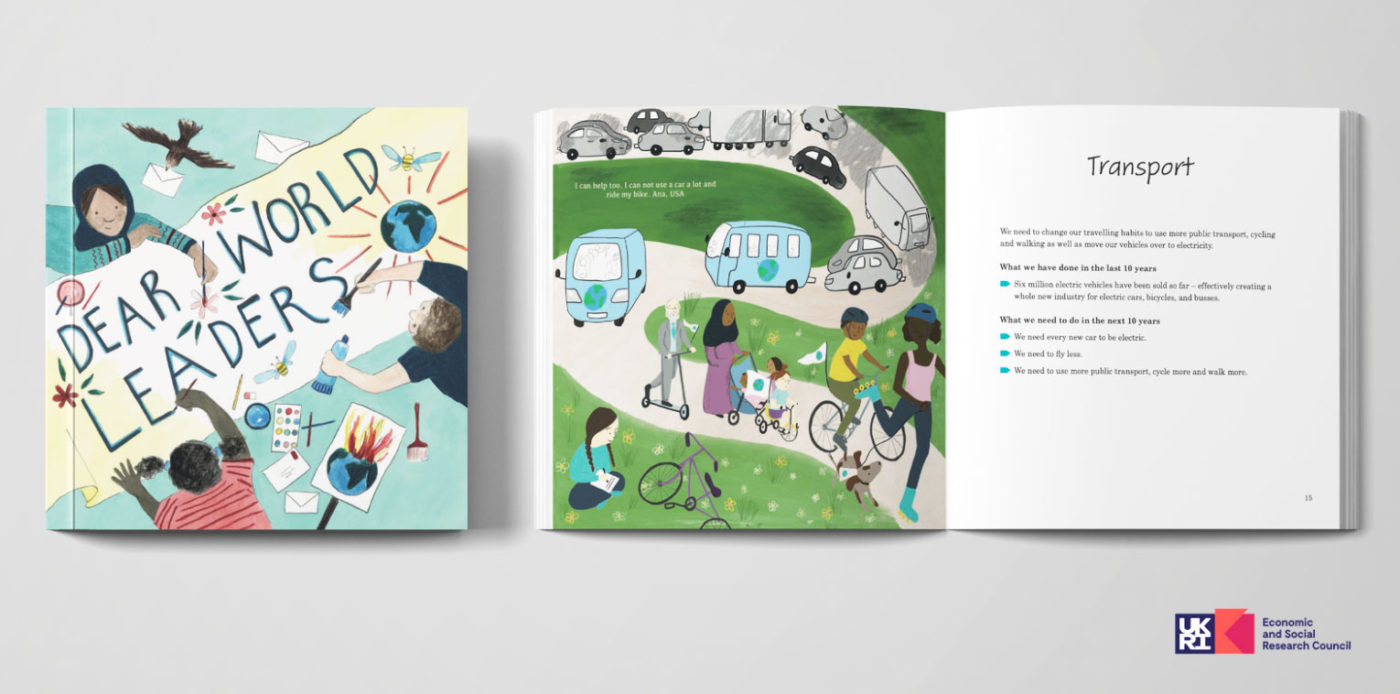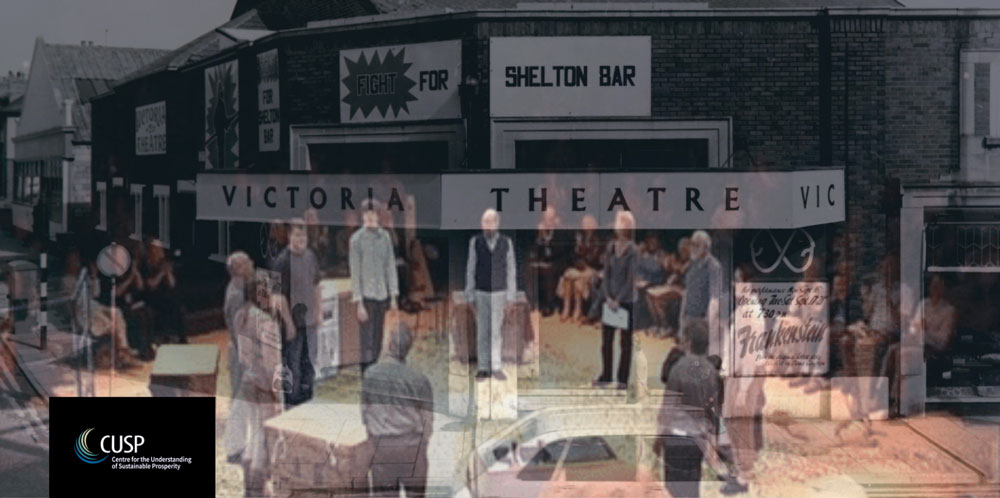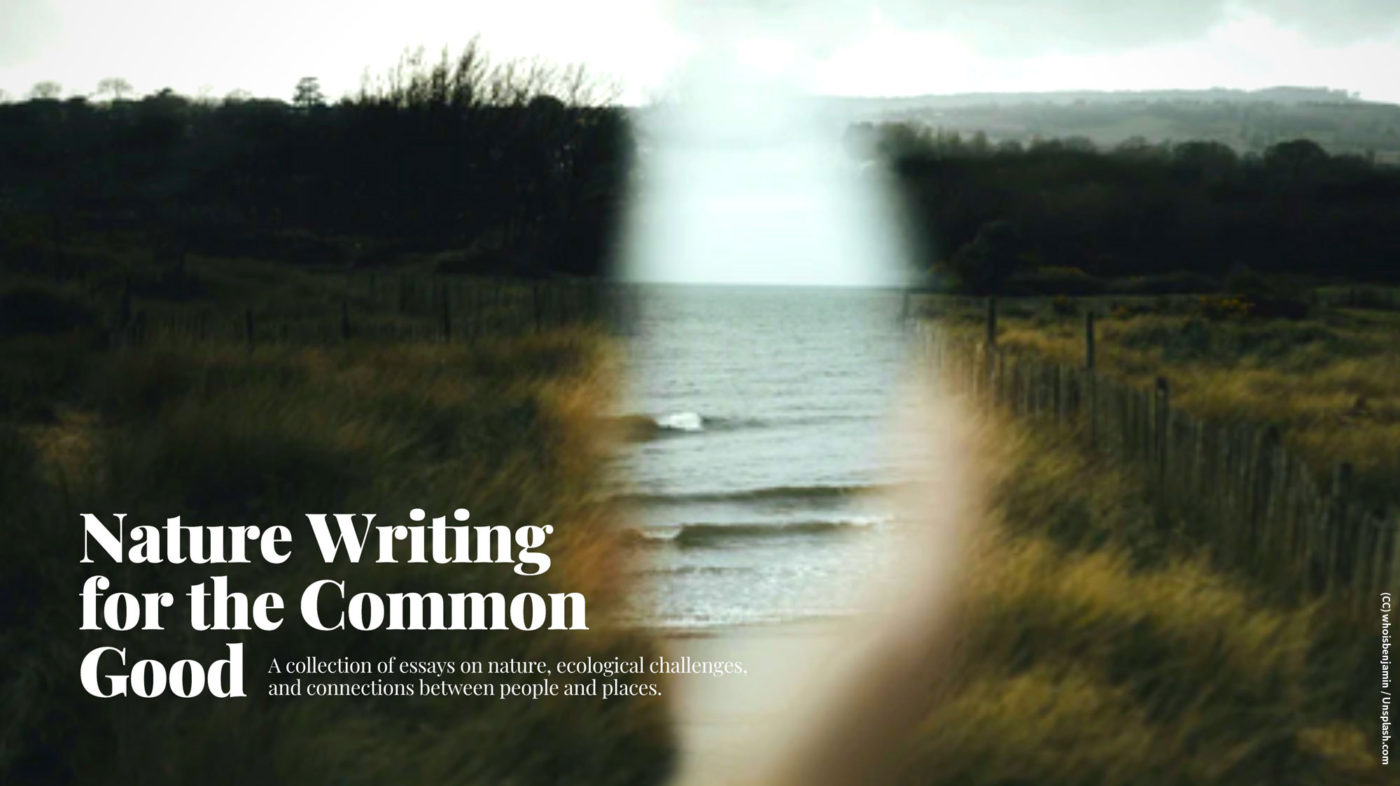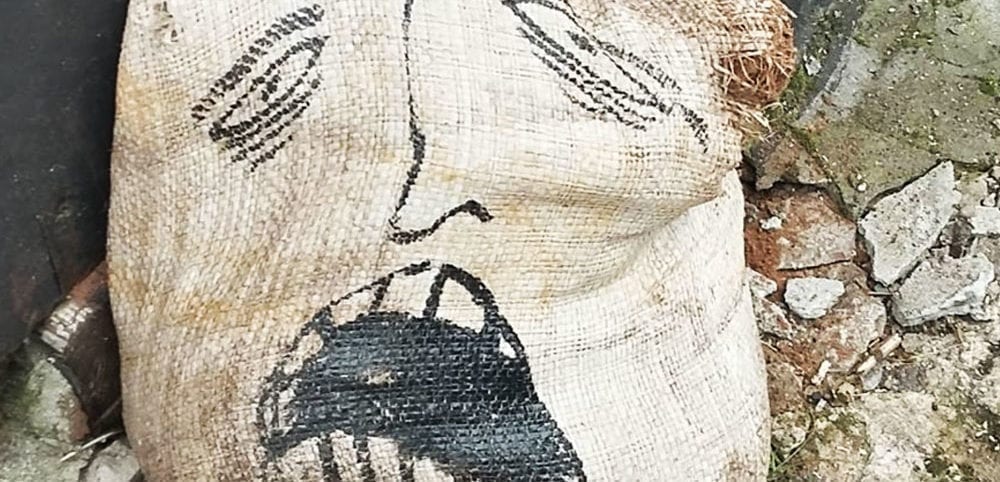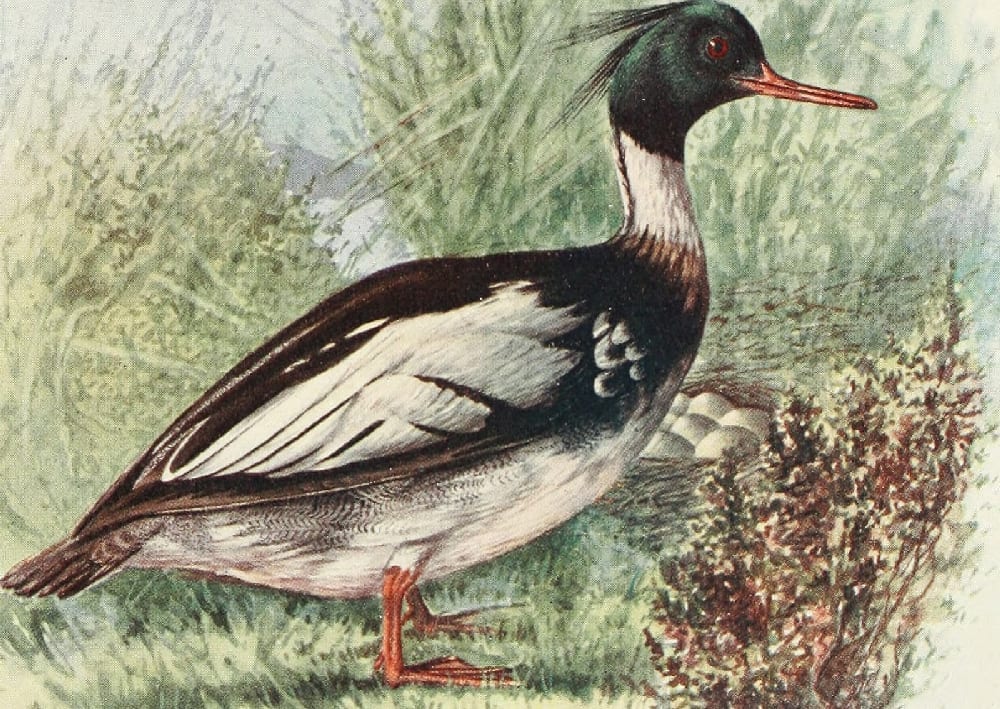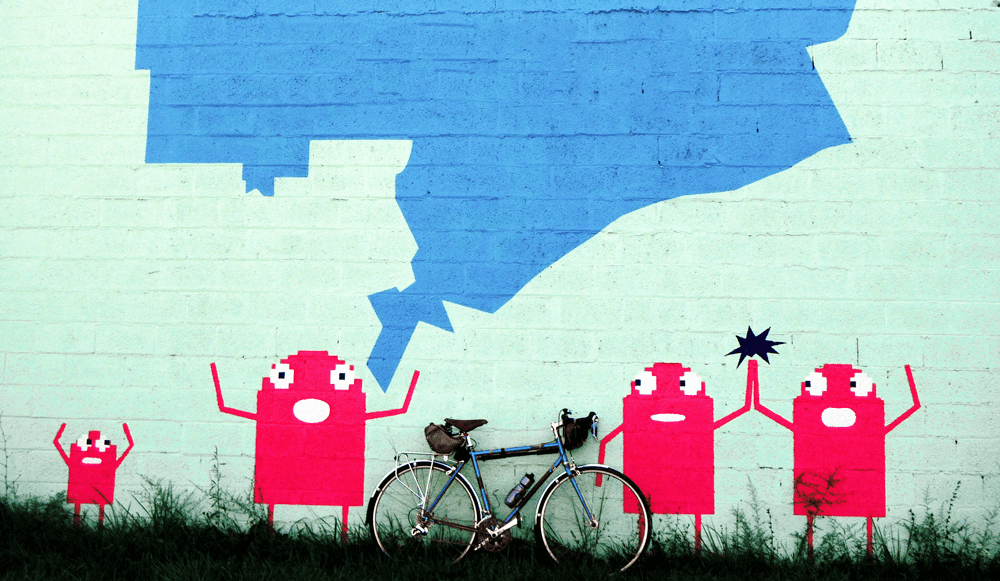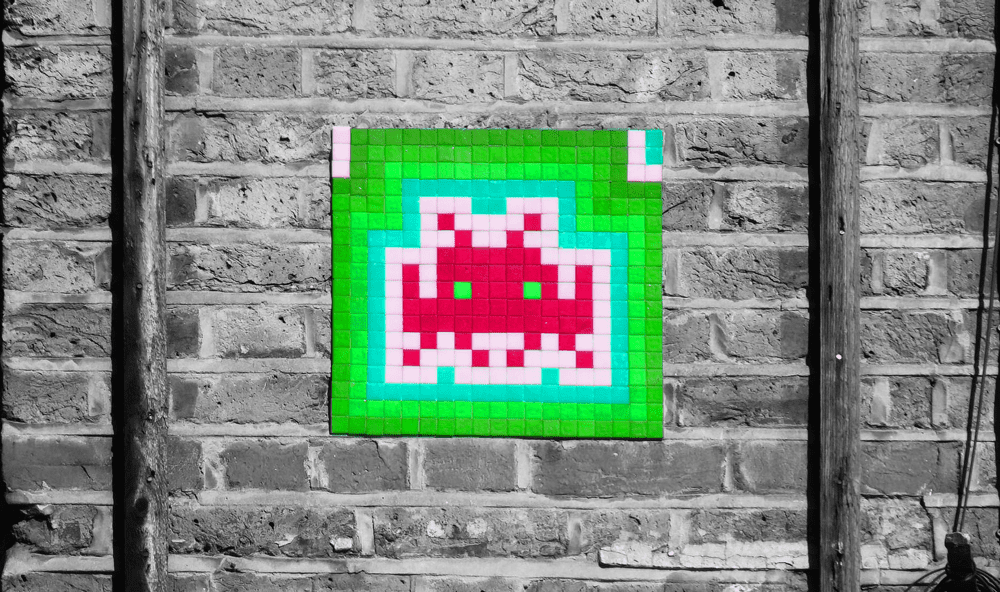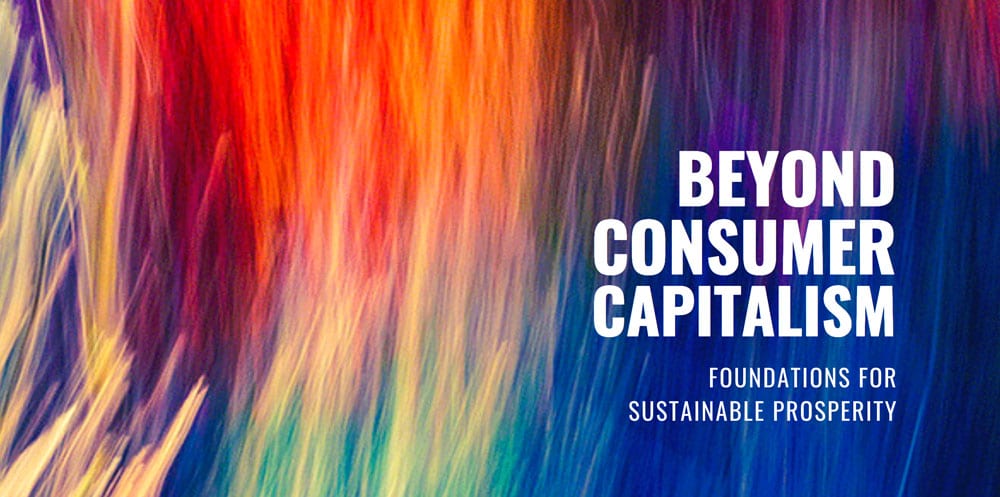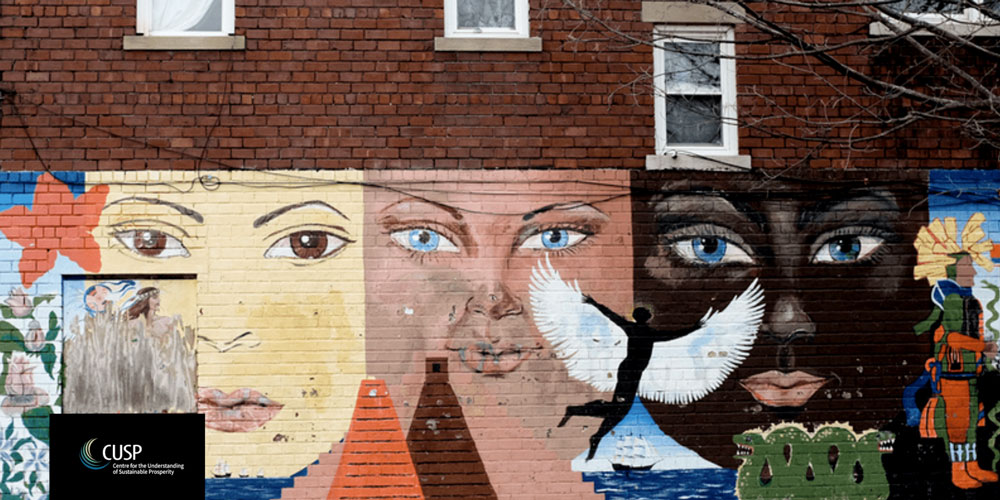THEMES / ARTS & CULTURE
A | The Role of the Arts and Culture in Delivering Prosperity
CUSP considers the role of arts and culture not simply as a tool for communicating sustainability, or as a way of envisioning the good life but as an inherent component of prosperity itself. Art and culture facilitate participation in the life of society and contribute to a creative and fulfilling quality of life. Our Arts theme develops the conceptual framework for this approach and explores the complex interaction between cultural prosperity, place, the quality (and availability) of employment, leisure, and the rights to self-expression. Browse through updates from this theme on the news page.
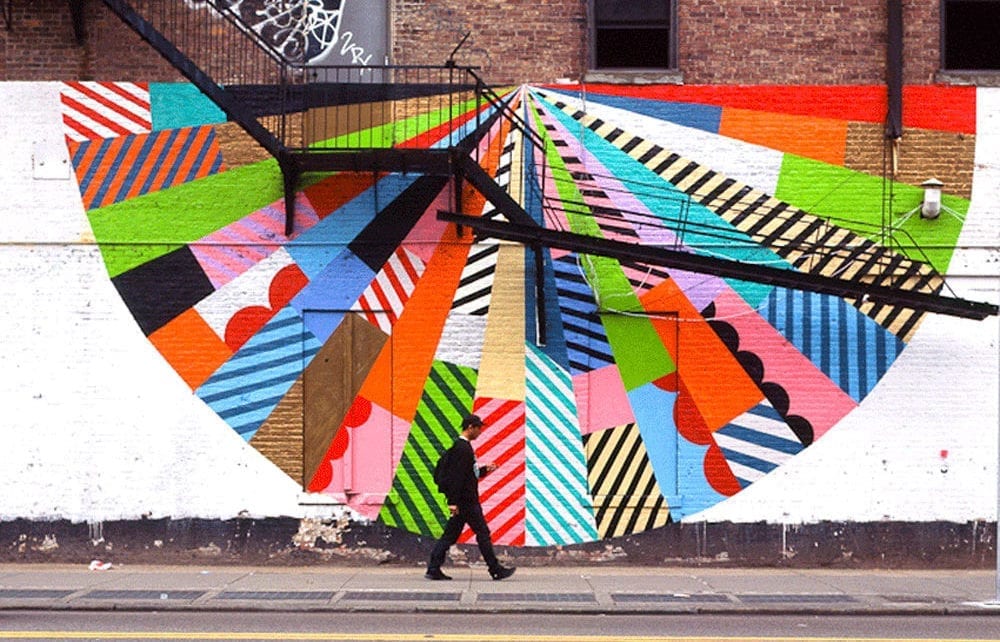
Summary
Our starting point is a familiarity with academic critiques of culturally-led ‘regeneration’ and economic development. The links between cultural investment, rising land prices and gentrification are very well demonstrated, while cultural economies themselves often develop labour markets that are marked by social stratification and patterns of exclusion as well as by exploitative or poorly paid work. We have chosen to work with arts and cultural organisations that are themselves challenging the narrow economically-focussed script of the ‘creative economy,’ in order to see if there is a role for cultural investments beyond this.
The outcomes from these smaller-scale investments may not fit the requirements for economic gains that public policy has focused upon but require us to rethink the notion of regeneration itself.’ This can take a variety of forms from the cultural activism associated with demonstrations and occupations; to discursive resistance to chain stores and the loss of independent businesses; to performance-based interventions that have been used in planning processes to reveal different conceptions of what citizens might want from development.
We work in three case study areas, though other place-based and other cases studies may also be included as further partnerships develop. These are 1) An urban high growth area (Islington, London): an area with the characteristics of hyper-gentrification and displacement, well-supplied with all manner of arts, cultural and leisure offerings. We are particularly working around the Finsbury Park area, 2) An urban low growth area (Stoke on Trent): an area that has suffered hugely from deindustrialisation seeking to re-invent its economy around craft manufacturing and lifestyle businesses; 3) A rural area (Hay-on-Wye, Wales): a town that is renowned for its literary festival and bookshops. Hay and the surrounding areas are attracting incomers who are seeking a particular version of the ‘good life’.
Blog posts
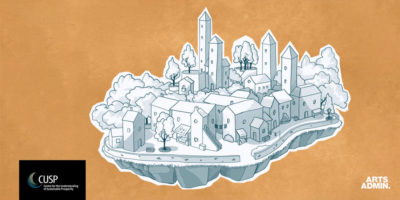
Utopias in Hibernation | Blog by Malaika Cunningham
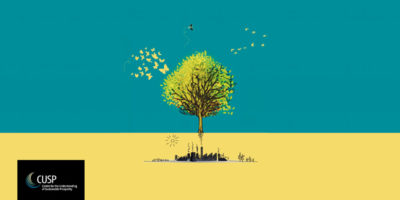
No more fairy tales | Guest blog by Denise Baden
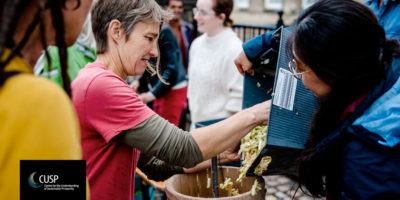
The Light Tree Celebrations | Blog by Malaika Cunningham
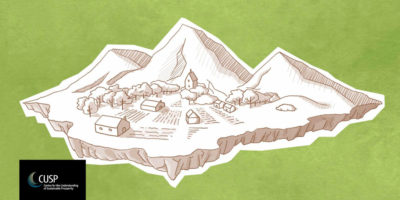
Harvesting Real Utopias—Blog by Malaika Cunningham
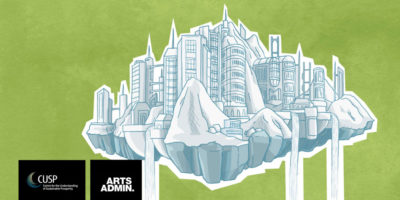
Bread & Roses | Blog by Malaika Cunningham

Culture and consumption | Blog by Denise Baden
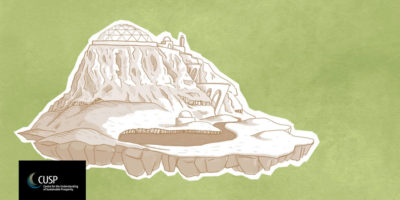
In praise of the small & humble | Blog by Malaika Cunningham
Programme
A1 | Culture in the Community
This project explores the role of arts and cultural activities as co-producers of a set of meanings about the good life, communicating and elaborating on visions for living better and more sustainably. The overall aim is to explore what role cultural activities pay in understanding of the good life and in sense of place and identity. The research involves focus groups and interviews and to investigate how cultural participation helps shaping people’s understanding of the ‘good life’ and particularly its relationship to sense of place. In particular we are focusing on the role of cultural activities in fostering inter-generational relationships. Alongside this, we are tracking the connection between localised cultural economies (number of cultural businesses, cultural institutions, cultural investment and consumption and so on) and wider socio-economic trends within these local areas to examine issues of gentrification, displacement and culturally-led economic development.
A2 | Culture as ‘good work’
One of the primary ways in which the arts contribute to sustainable prosperity is through the provision of meaningful work. Drawing on McIntyre’s work on practices (1981)—which understands various skilled, complex and collective activities as possessing their own ‘internal’ goods—and Hesmondhalgh and Baker’s (2011) work on culture as ‘good work,’ Project A.2 examines the non-material benefits that artists draw from their work and how they balance this against material and other needs. We also explore the various networks and organisational forms—such as co-ops, freelancing, portfolio working—which people adopt in order to negotiate the precarious nature of cultural work. The polarisation of the cultural workforce, and the increasing exclusion of working class, ethnic minority, female and disabled cultural workers is apparent in national statistics but we need to understand how these processes operate at the local level. In each of our case study areas, we have conducted focus groups with young people (16-19 year olds) with aspirations to become professional cultural producers to understand the opportunities for and barriers to working in the cultural industries. In addition we have conducted a series of depth interviews with a variety of cultural workers at different stages in their working lives to investigate the trade-off that people make between income and more meaningful work, the constraints on these choices and the rewards they expect and achieve.
A3 | Creativity in everyday life
Drawing on other recent academic research such as the AHRC’s Understanding Everyday Participation Project, this project explores the role of creativity in everyday life. Project A.3 draws data from the same case study areas as in A.1 and A.2, but it deepens and widens this focus. For example, we have a PHD project which looks in depth at everyday cultural participation the form of line-dancing and darts playing in Stoke-on-Tent. The meanings that people attribute to these activities and the role in plays in ageing, relationships and sense of places are the focus of this exploration. In addition, with wider geographical lens we have looked at the role nature writing and the graphic novel as forms of environmental activism. We are progressing our work on nature writing with a competition for new nature writing, which will focus on people and places often marginalised in current nature publishing and will result in an online book, due out 2020.
A4 | Drama and the good life
The dramatic form has a long pedigree in elaborating contested visions of the good life. From Plato’s Dialogues to 1970s TV sitcom The Good Life, drama has been used to explore both moral and pragmatic dimensions of our ideas about prosperity. One of our PhD projects looks at drama as a form of political speech through two case studies of recent productions. We are also developing a professional radio drama drawing inspiration from the work of CUSP, building on the PI’s own 25 year experience as a radio dramatist.
Projects
Publications
In this working paper, we explore young people’s use of shared social understandings to describe what is important in their present lives, to envision their futures, and to respond to the challenges they identify to the realisation of their good lives.
The paper explores energy justice narratives in popular culture, focusing on five Doctor Who episodes from the 1960s, 70s and 80s, highlighting the series’ limited critique of energy production and the class system. The show’s narratives of paternalistic rescue and technological progress remain highly relevant to current energy transition discussions.
Inspired by a line dancing club in Stoke-on-Trent, and drawing principally on cultural theorist Raymond Williams, this article makes the case for appreciating the ways that cultural practices age and change over time.
This is a book which is set out to help children learn about climate change and support them in understanding some of the solutions to the many problems the world is facing. The cross-institutional project was led by Prof Aled Jones at the Global Sustainability Institute. It includes lesson plans and activities for children to help them think about the world with climate change, how they can be active in responding to its challenges and what might happen over the next ten years.
Drawing on semi-structured interviews carried out with members and organisers of the Ages and Stages theatre group in Stoke-on-Trent, United Kingdom, this article examines the role of community theatre as an arts practice that facilitates intergenerational relationships. The findings point to a need for a deeper integration of arts and cultural practice, intergenerational practice and urban regeneration schemes.
Can Nature Writing be a force for saving what we wish to conserve and carry on loving, and to hand on to future generations? Can it be a contribution to the political and social movements for a re-imagination of the good life, of sustainable prosperity? This is an online collection of previously unpublished authors on nature, ecological challenges, and connections between people and places.
Recent attempts by local governments to engage in participatory policy-making hint at a willingness for a more democratically inclusive approach to policy. However, there is often a gap between the rhetoric of citizen engagement and the actual implementation of these policy-making initiatives.
New edited collection by CUSP investigator Kate Oakley and Mark Banks, critiquing the current model of the creative economy and considering sustainable alternatives; exploring the complex interactions between cultural prosperity, employment quality and leisure; and showcasing interdisciplinary and international perspectives on creative economy assessment.
The so-called ‘creative economy’ model has been one of the central tenets of urban restructuring over the past forty years. This paper focuses on the ‘Ten Streets’ redevelopment project, a recent and ongoing effort to construct a ‘creative quarter’ on Liverpool’s North Shore Dock that the city’s mayor, Joe Anderson, has declared will ‘redefine Liverpool’s economy over the next thirty years’.
CUSP researchers Kate Oakley and Jonathan Ward are guest editors of a special edition of Cultural Trends. In exploring how the idea of the creative economy persists since the 1980s, papers engage with the topic on a social, political, economic and/or organisational level.
This paper explores the potential of ‘new nature writing’ – a literary genre currently popular in the UK – as a kind of arts activism, in particular, how it might engage with the environmental crisis and lead to a kind of collective politics.
The purpose of this paper is to prepare the ground for a strand of work in CUSP which aims to look at the role of culture in everyday life, and in doing so to understand how it might operate as an element of sustainable prosperity. The paper considers the basis on which we might start to think about new legitimations for cultural policy and a fuller understanding of its potential for living well with less.
This paper analyses the potential for cultural work to encourage alternative visions of the “good life”, in particular, how it might encourage a kind of “sustainable prosperity” wherein human flourishing is not linked to high levels of material consumption but rather the capabilities to engage with cultural and creative practices and communities.
This paper explores the ramifications of the combined crises now faced by the prevailing growth-based model of economics. In paying a particular attention to the nature of enterprise, the quality of work, the structure of investment and the role of money, the paper develops the conceptual basis for social innovation in each of these areas, and provides empirical examples of such innovations.
Understanding sustainable prosperity is an essential but complex task. It implies an ongoing multidisciplinary and transdisciplinary research agenda. This working paper sets out the dimensions of this task. In doing so it also establishes the foundations for the research of the ESRC-funded Centre for the Understanding of Sustainable Prosperity (CUSP).
Inequality has become essential to understanding contemporary society. The article by Kate Oakley and Dave O’Brien considers inequality and cultural value from two points of view: how cultural value is consumed and how it is produced.

